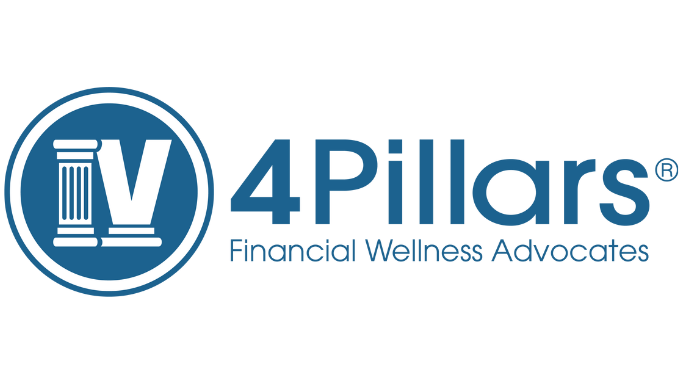Rebuilding your credit score is a crucial step toward regaining financial freedom, especially if you’ve experienced financial difficulties in the past. Whether you’re in Alberta or anywhere else in Canada, understanding the steps to improve your credit score can make a world of difference in your financial future. This guide will walk you through practical steps for rebuilding your credit score, focusing on Canadian-specific strategies, with insights from 4 Pillars, a trusted name in credit counseling and debt management.
Understanding Credit Scores in Canada
Before diving into the steps for rebuilding your credit score, it’s essential to understand what a credit score is and how it impacts your financial life. In Canada, your credit score is a three-digit number that represents your creditworthiness, based on your credit history. Ranging from 300 to 900, the higher your score, the better your credit worthiness.
Credit scores are used by lenders, landlords, and even employers to assess your financial responsibility. A low credit score can make it difficult to secure loans, rent an apartment, or even get a job. Therefore, rebuilding your credit score is crucial for anyone looking to improve their financial standing.
Step 1: Review Your Credit Report
The first step in rebuilding your credit score is to review your credit report. In Canada, you can obtain a free credit report from the two major credit bureaus, Equifax and TransUnion, once a year. Reviewing your credit report allows you to identify any errors or discrepancies that could be negatively impacting your credit score.
Action Steps:
- Request Your Credit Report: Visit Equifax or TransUnion to request your free credit report.
- Check for Errors: Look for any inaccuracies, such as incorrect personal information, account information or fraudulent activity.
- Dispute Errors: If you find any errors, initiate the process to dispute the error with the credit bureaus.
- Update Personal information: When you change your address, phone numbers, or even employment, it is highly recommended to update the credit agencies about any changes to avoid any credit declines.
Step 2: Create a Budget which includes paying bills on time
A budget is a powerful tool for managing your finances and rebuilding your credit score. By creating a budget, you can ensure that you’re living within your means and avoiding unnecessary debt.
Action Steps:
- List Your Income and Expenses: Write down all sources of income and categorize your expenses.
- Identify Areas to Cut Back: Look for areas where you can reduce spending, such as dining out or entertainment.
- Allocate Funds for Debt Repayment: Prioritize paying off high-interest debts and ensure you’re making at least the minimum payments on all your accounts.
Step 3: Make Timely Payments
One of the most significant factors affecting your credit score is your payment history. Making timely payments on all your bills, including credit cards, loans, and utilities, is crucial for rebuilding your credit score.
Action Steps:
- Set Up Payment Reminders: Use calendar alerts or automatic payments to ensure you never miss a due date. Pay at least two or three business days before the due date.
- Pay More Than the Minimum: Whenever possible, pay more than the minimum amount due to reduce your overall debt faster.
- Avoid Late Payments: Late payments can significantly impact your credit score, so make sure to pay on time every month.
- Pay first and Dispute later– If you feel there is a fraudulent charge, you still require to make a payment, if your dispute is not resolved before the payment due date.
Step 4: Reduce Your Debt-to-Credit Ratio
Your debt-to-credit ratio, also known as your credit utilization ratio, is the amount of credit you’re using, compared to your total available credit. A high debt-to-credit ratio can negatively impact your credit score and also show you are living beyond your means, so it’s essential to keep this ratio as low as possible.
Action Steps:
- Pay Down Credit Card Balances: Focus on paying down high-interest credit card balances or Lower balance debts first. There are advantages in following either of the plans
- Avoid Maxing Out Credit Cards: Try to keep your credit card balances below 30% of your credit limit.
- Consider a Debt Consolidation Loan: If you have multiple high-interest debts, a debt consolidation loan can help you pay them off and reduce your overall debt.
- Do not cancel Credit- Once you cancel any credit, all the history of payments made is lost and it affects the credit score. So it is advisable not to cancel any credit.
Step 5: Consider a Secured Credit Card
If your credit score is low, it may be challenging to qualify for traditional credit cards. A secured credit card can be an excellent option for rebuilding your credit score. With a secured credit card, you’ll need to provide a deposit that serves as your credit limit.
Action Steps:
- Research Secured Credit Cards: Look for secured credit cards with low fees and favorable terms.
- Use the Card Responsibly: Make small purchases and pay off the balance in full each month.
- Monitor Your Progress: Keep track of your credit score to see how using a secured credit card is impacting your credit.
Step 6: Work with Credit Counseling Services
If you’re struggling to rebuild your credit score on your own, working with a credit counseling service can provide valuable guidance and support. 4 Pillars, a leading credit counseling service in Alberta, specializes in helping individuals and families rebuild their credit and achieve financial stability.
Action Steps:
- Contact 4 Pillars: Reach out to 4 Pillars for a free consultation to discuss your financial situation.
- Develop a Customized Plan: Work with a credit counselor to create a personalized plan for rebuilding your credit score.
- Follow Through on Recommendations: Implement the strategies recommended by your credit counselor to improve your credit score over time.
The Importance of Patience and Persistence
Rebuilding your credit score is not an overnight process. It requires patience, persistence, and a commitment to making positive financial choices. By following the steps outlined in this guide, you can gradually improve your credit score and work towards a brighter financial future.
Take Action
Ready to take control of your financial future? Contact 4 Pillars today to learn more about how we can help you rebuild your credit score and achieve financial stability. Don’t wait—start your journey towards financial freedom today!



